Accounting Software for Government Agencies
Manage accounts and track all invoices, expenses, and payments in one place with the best accounting app for government agencies. Grab a 7-day free trial and use the Vyapar app for everyday accounting needs.
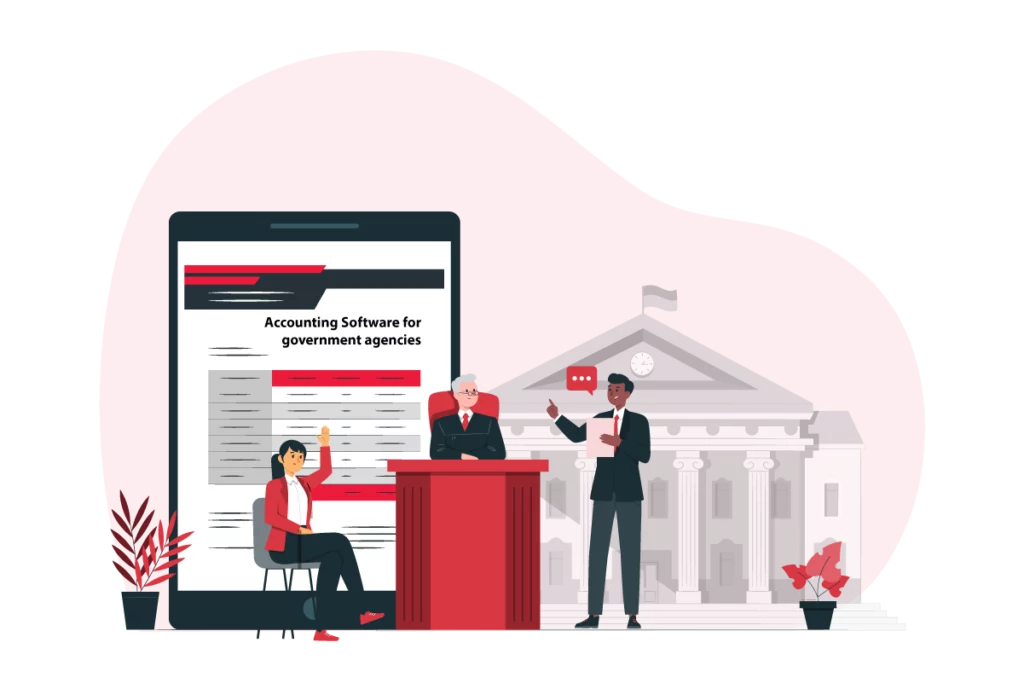

1 Cr+
Happy Customers

FREE
Android Mobile App

Rated 4.7 / 5
On Google Play Store

Multi-Device
Use together on Mobile/Desktop

Multi-User
User Management
Feature
Features of Accounting Apps for Government Agencies

Budgeting and Forecasting
A set of professional budgeting tools is essential for government agencies as it allows them to plan and monitor their financial resources and goals. Forecasting expense expectations can help create and manage budgets for each fund, project, or entity.
Budgeting and forecasting also help to project and analyse future financial scenarios and outcomes and adjust the plans and strategies accordingly. Government entities can compare forecasts with the actual results and use the data to improve performance.
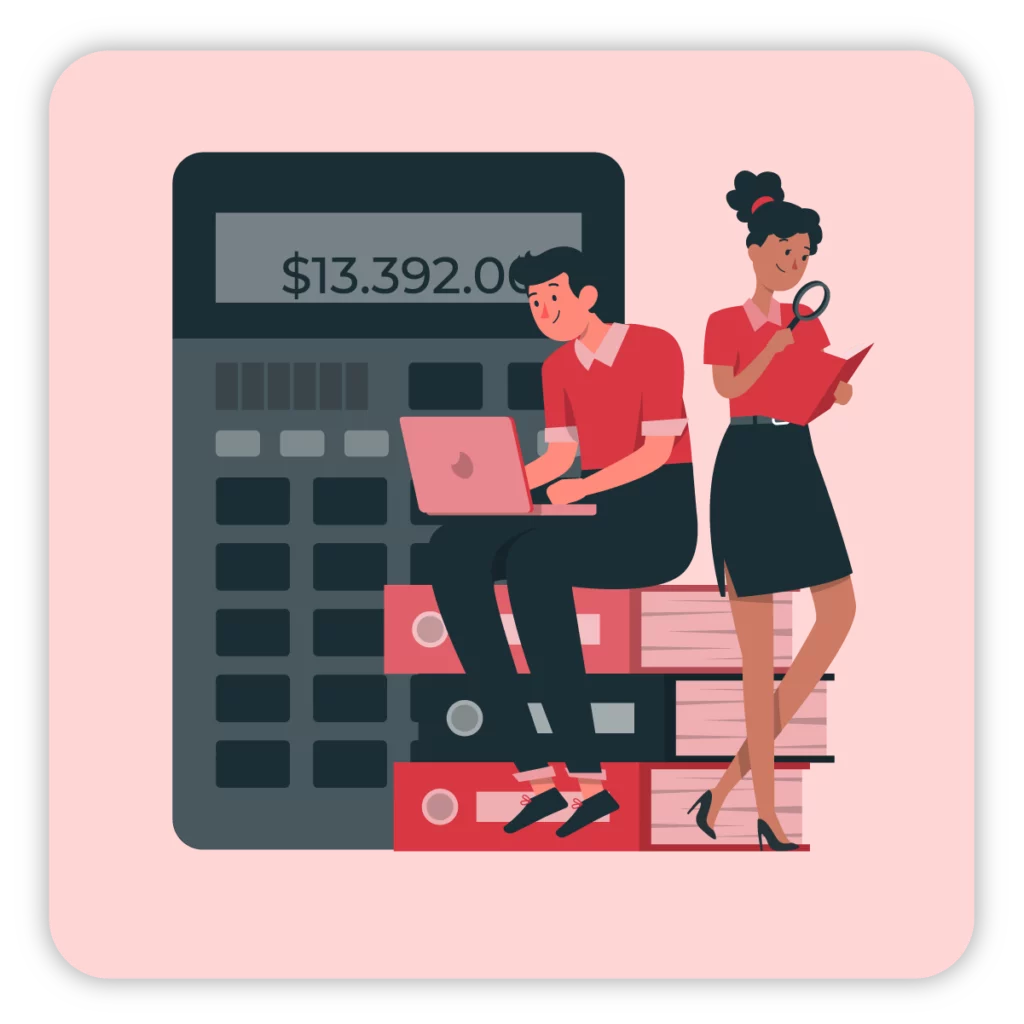
Fund Accounting
Fund accounting is a feature that allows government agencies to track and report the sources and uses of funds for each fund or project separately. Fund accounting helps to ensure that the funds are allocated and spent according to the budget and the objectives of the fund or scheme.
Fund accounting software also helps monitor the performance and outcomes of the fund or project and provides accountability and transparency to the stakeholders.
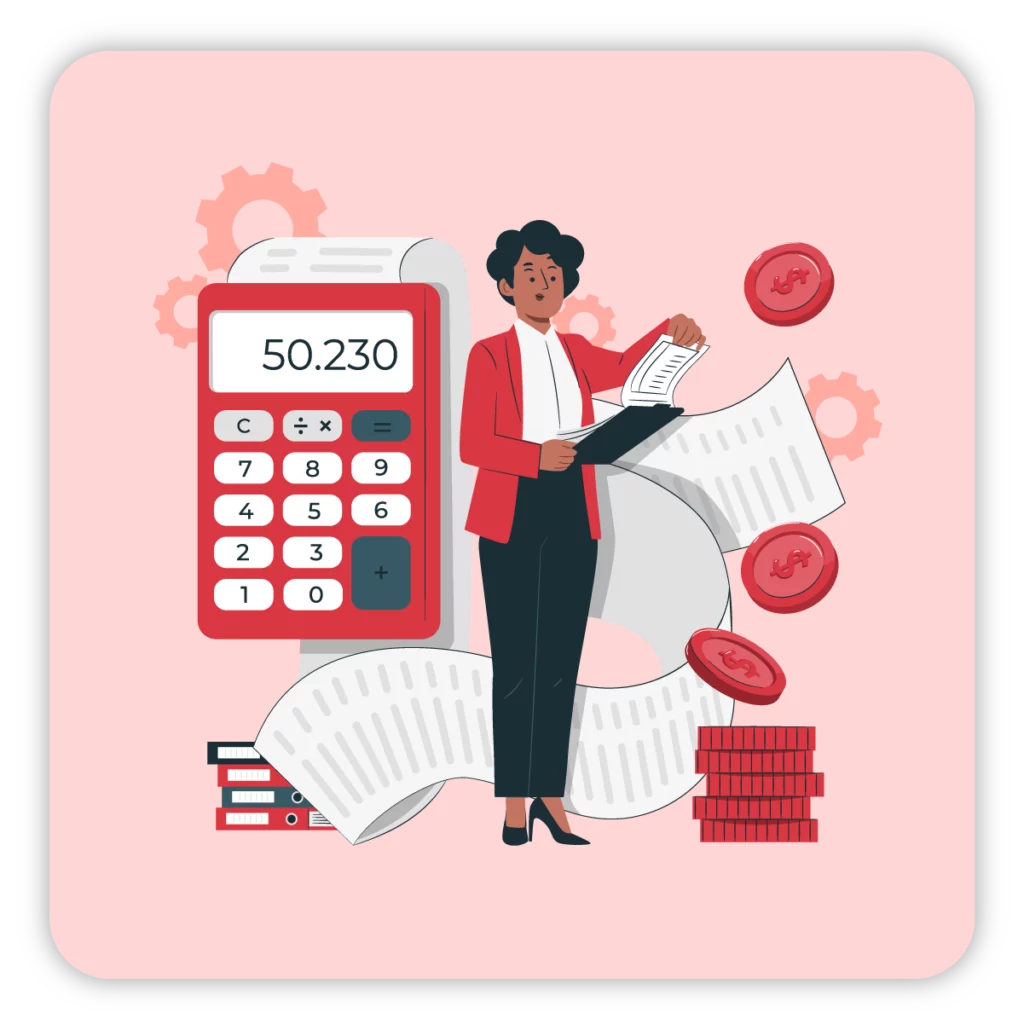
Multi-Entity Accounting
Multi-entity accounting allows government agencies to manage and consolidate multiple entities’ financial data and transactions, such as departments, divisions, branches, or subsidiaries.
Further, multi-entity accounting helps to simplify and automate inter-entity transactions, such as transfers, allocations, eliminations, and reconciliations. Multi-entity accounting also helps to generate and analyse each entity’s financial reports and statements, as well as the consolidated financial reports and statements of the whole organisation.
Empower Your Government Agency With Vyapar
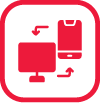
Data sync across Android and desktop devices
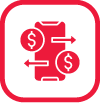
Bookkeeping to track all transaction records
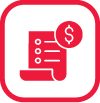
Billing and quotations for everyday invoicing
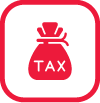
Create GST reports to ensure tax compliance

Store data digitally with encryption in Google Drive
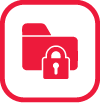
Low stock alerts over WhatsApp and email

Warehouse management to best utilise storage space

Party management to track repeat contractors
Other Key Features of Vyapar Accounting Apps for Government Businesses
A professional accounting app for government agencies provides various features and functions designed to meet the specific needs and challenges of the public sector.
These features and functions help to streamline and simplify the accounting processes and tasks, improve the accuracy and consistency of the accounting data and reports, and enhance the compliance and transparency of the financial operations.
Some key features and functions available in accounting apps for government agencies are listed below:
Multi-Currency Accounting
Multi-currency accounting allows government agencies to deal with multiple currencies, such as foreign, digital, or special drawing rights. Multi-currency accounting helps to convert and record the transactions and balances in different currencies, using the relevant countries’ exchange rates and accounting standards.
Using multi-currency accounting features also helps to report and compare the financial results and performance in different currencies, using the currency of choice or the organisation’s base currency.

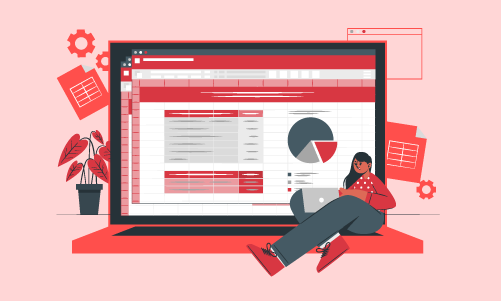
Expense Tracking And Reimbursement
Expense tracking helps track and manage the expenses incurred by their employees, contractors, or volunteers. It helps to capture and categorise the costs, such as travel, meals, lodging, etc., and verify and approve them for reimbursement.
Expense tracking and reimbursement also help to prevent fraud and misuse of funds and provide transparency and accountability to the stakeholders. Government offices need to use a professional accounting tool as it helps make the entire process effortless.
Invoicing and Billing
Invoicing and billing are features that allow government offices to create and send invoices and bills to their customers, vendors, or donors. It helps track and record the revenue and expenses of the organisation and ensures that the payments are received and made on time and in full.
Invoicing and billing also help to manage the tax and GST calculations and deductions and provide receipts and acknowledgments to the parties involved.
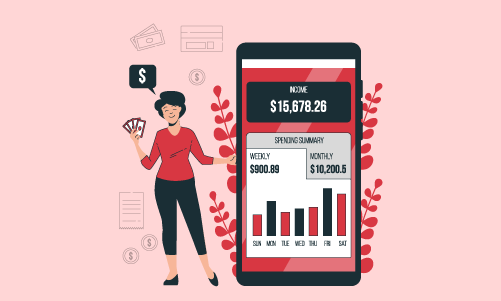
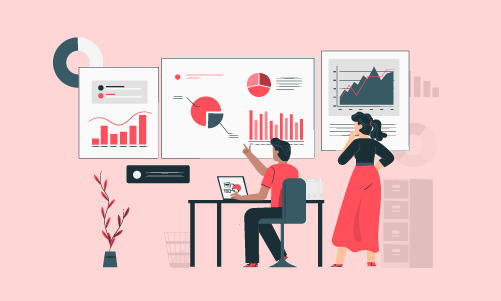
Reporting and Analytics
A set of professional budgeting tools is essential for government agencies as it allows them to plan and monitor their financial resources and goals. Forecasting expense expectations can help create and manage budgets for each fund, project, or entity.
Budgeting and forecasting also help to project and analyse future financial scenarios and outcomes and adjust the plans and strategies accordingly. Government entities can compare forecasts with the actual results and use the data to improve performance.
Human Resource Management
Human resource management is a feature that allows government offices to manage and administer their human resource functions, such as salaries, wages, benefits, taxes, deductions, etc.
A professional accounting management app helps calculate and disburse the payroll and benefits to the employees and complies with the labour laws and regulations of the relevant authorities. Payroll and human resource management also help manage employee records and provide performance reviews with feedback.
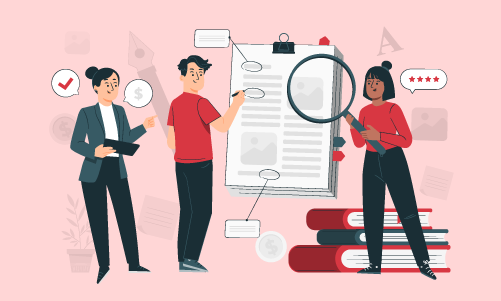
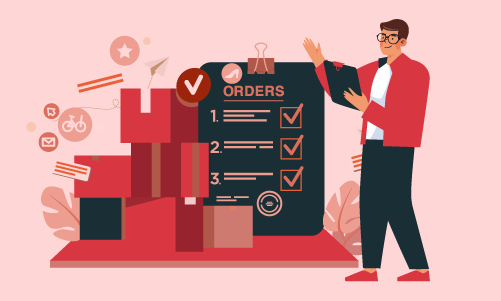
Inventory Management
Professional inventory management is a must-have feature for all government agencies as it helps them manage and control their inventory and orders, such as supplies, materials, equipment, etc. It helps monitor and update the inventory levels and locations and optimise the inventory costs and turnover.
Inventory management features also help process and fulfil orders and track and record deliveries and returns. It ensures that delays due to a lack of items in inventory do not impact government services.
Ensure Transparency & Efficiency. Start Your Free Government Accounting Trial Today!
Types of Accounting Software for Government Agencies
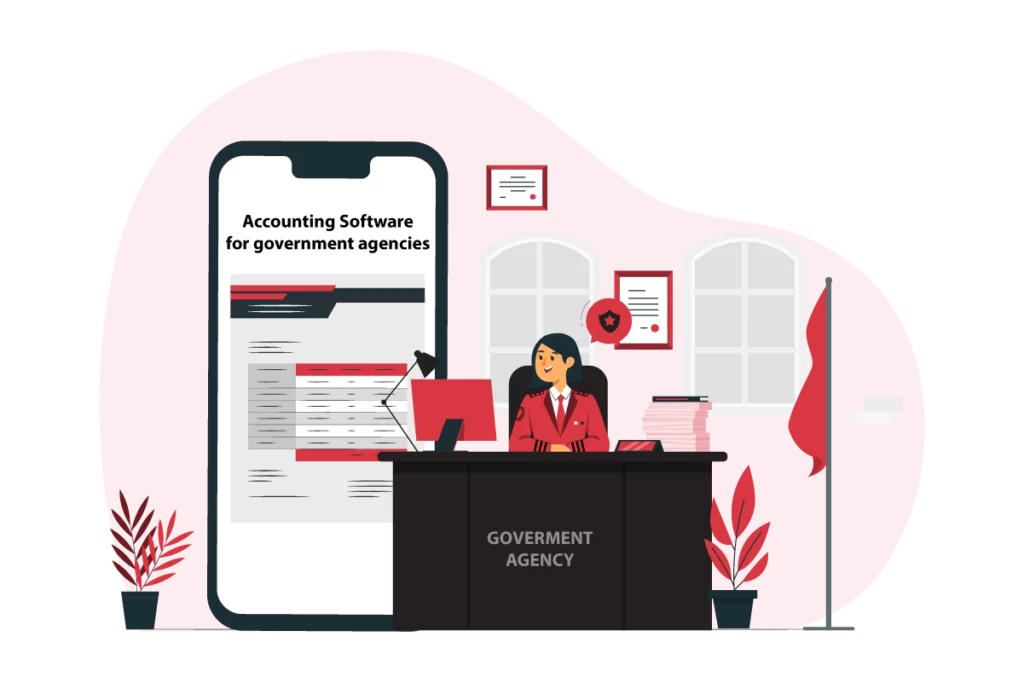
Accounting apps for government agencies can be classified into three main types based on how they are deployed and accessed: cloud-based, on-premise, or hybrid.
Each accounting software comes with its own set of advantages and disadvantages, and you can choose them depending on the needs and preferences of the organisation. Here are three types of accounting apps used by government agencies.
1. Cloud-Based Accounting Software
Cloud-based accounting software is hosted on a remote server and accessed via the internet. Professional cloud-based accounting software does not require installation or maintenance on the user’s device. It can be accessed from anywhere and on any device, as long as there is an internet connection.
Some of the advantages of cloud-based accounting software are:
- Lower upfront costs, as there is no need to purchase or install hardware or software.
- Higher scalability, as the software can be easily upgraded or downgraded according to the organisation’s changing needs.
- Greater accessibility, as the software can be accessed from any location and any device, such as laptops, tablets, or smartphones.
- Enhanced security, as the data is stored and encrypted on the cloud and protected by multiple layers of firewalls and backups.
2. On-Premise Accounting Software
On-premise accounting software is installed on the user’s server and device. Working with on-premise accounting software requires a significant investment in hardware and software and a dedicated IT team to maintain and update the system.
Some of the advantages of on-premise accounting software are:
- Higher customisation, as the software can be tailored and modified to suit the specific needs and preferences of the organisation.
- Greater control, as the software and the data are owned and managed by the organisation and not dependent on any external provider.
- More security, as the data is stored and processed on the organisation’s server and device and not exposed to the internet or any third-party access.
3. Hybrid Accounting Software
Hybrid accounting software combines the features and benefits of cloud-based and on-premise accounting software. Using the best hybrid accounting software allows an organisation to choose which data and functions to store and run on the cloud and which to keep and run on-premise, depending on the needs and preferences of the organisation.
Some of the advantages of hybrid accounting software are:
- Optimal balance, as the organisation can enjoy the best of both worlds, leverage the strengths and overcome the weaknesses of cloud-based and on-premise accounting software.
- Flexible and adaptable, as the organisation can switch between the cloud and on-premise modes and adjust the settings and features according to the changing needs and preferences of the organisation.
- Cost-effective and efficient, as the organisation can save on the costs and resources of both cloud-based and on-premise accounting software and optimise the performance and productivity of the system.
What is an Accounting Software for Government Agencies?
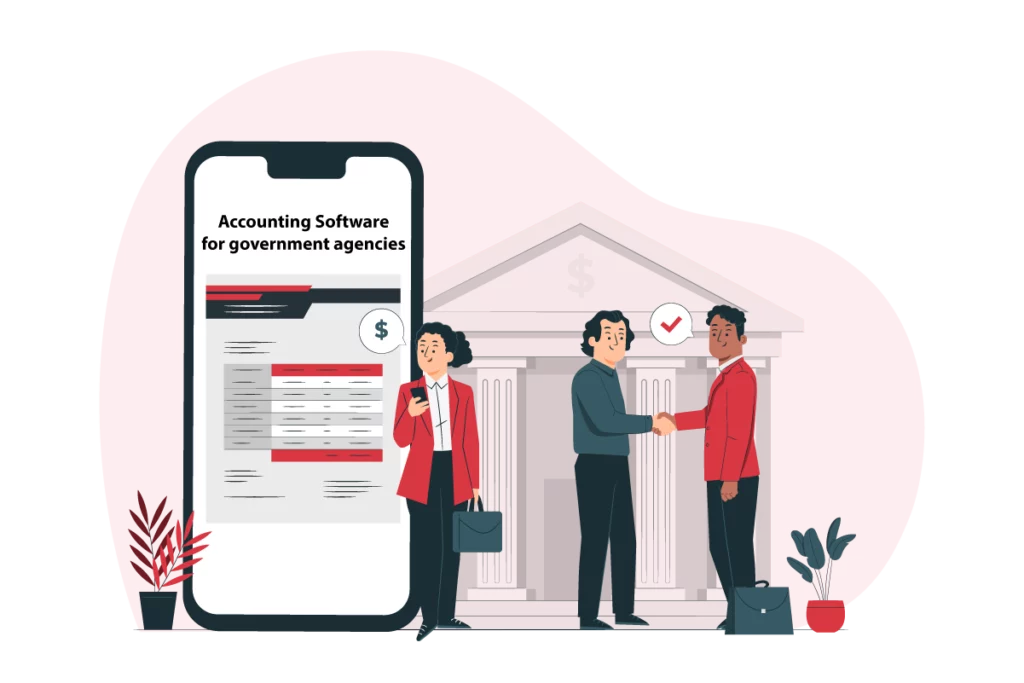
Professional accounting software helps record, process, and report financial transactions and information. It is essential for any organisation that deals with money, but it is necessary for government athorities and public institutions in India.
Government authorities and public institutions must manage large and complex budgets, comply with various rules and regulations, and report to multiple stakeholders. They must also ensure transparency, accountability, and efficiency in their financial operations.
These challenges and requirements make accounting for government entities different from accounting for private businesses. An accounting app for government agencies can help meet these challenges and requirements by providing features and functions tailored to the public sector’s specific needs.
An accounting app for government agencies can automate and simplify accounting processes and tasks, such as invoicing, expense tracking, inventory management, order management, etc. They come with multiple integrated features that help improve the accuracy, consistency, and auditability of the accounting data and reports.
Best Practices for Using Accounting Software for Government Agencies
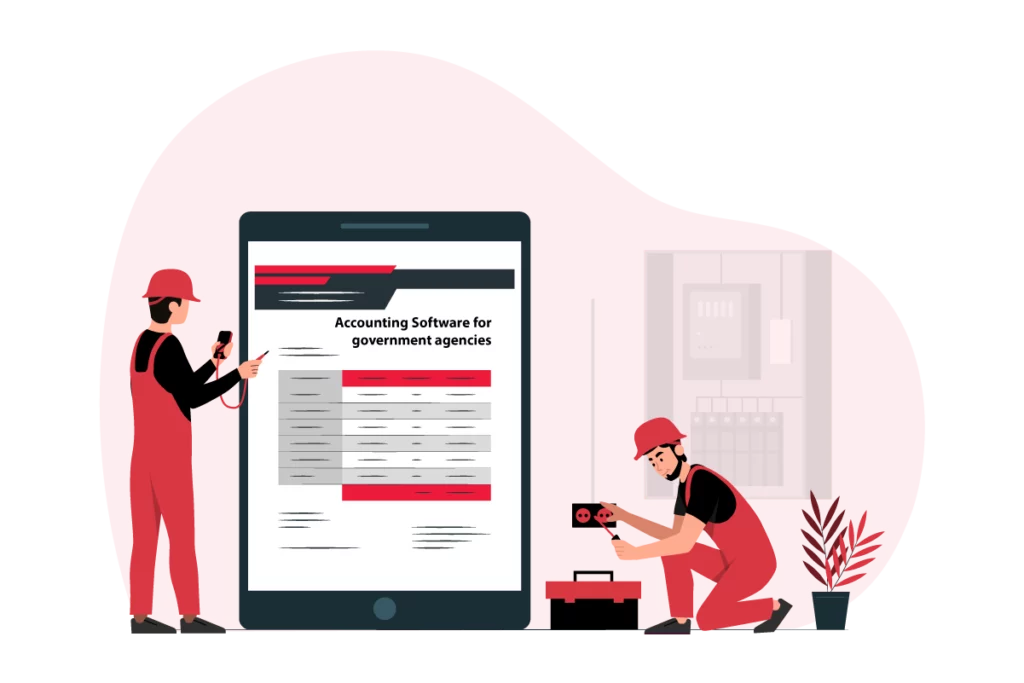
Using accounting apps for government businesses can help improve the public sector’s financial management and performance. Still, it also requires some best practices to ensure the quality and reliability of the accounting system and the accounting data.
Here are some of the best practices for using accounting apps for government agencies:
Step 1: Setting Up The System
The first step to using an accounting app for a government agency is to set up the system correctly and securely. It involves:
- Choose the correct type of accounting software for your organisation based on your needs, preferences, and budget.
- Configure the system settings and preferences, such as the chart of accounts, the financial year, the currency, the tax rate, and more.
- Import or enter the existing data and transactions, such as the opening balances, the customers, the vendors, the inventory, etc.
- Test and verify the system functionality and accuracy, such as the calculations, the reports, the integrations, etc.
Step 2: Customising The System
The next step to using accounting software for government agencies is customising the system to suit your specific needs and goals. It involves:
- Creating and modifying the budgets, the funds, the projects, and the entities according to your financial plans and objectives.
- Create and modify the invoices, the bills, the receipts, and the statements according to your branding and communication style.
- Creating and modifying the workflows, the rules, the alerts, and the approvals according to your internal controls and policies.
- Create and modify the dashboards, the reports, the graphs, and the analytics according to your information and analysis needs.
Step 3: Managing and Maintaining The System
The final step to using an accounting app for a government agency is to manage and maintain the system regularly and consistently. It involves:
- Updating the system software and hardware and the data and transactions ensures the system is up-to-date and reliable.
- Backing up the system data and transactions, as well as the system software and hardware, to ensure the system is safe and recoverable.
- Securing the system data and transactions, as well as the system software and hardware, to ensure the system is protected and compliant.
- Supporting the system users and stakeholders, such as the employees, the customers, the vendors, the donors, etc., to ensure the system is user-friendly and satisfactory.
Challenges and Solutions for Accounting Software for Government Agencies
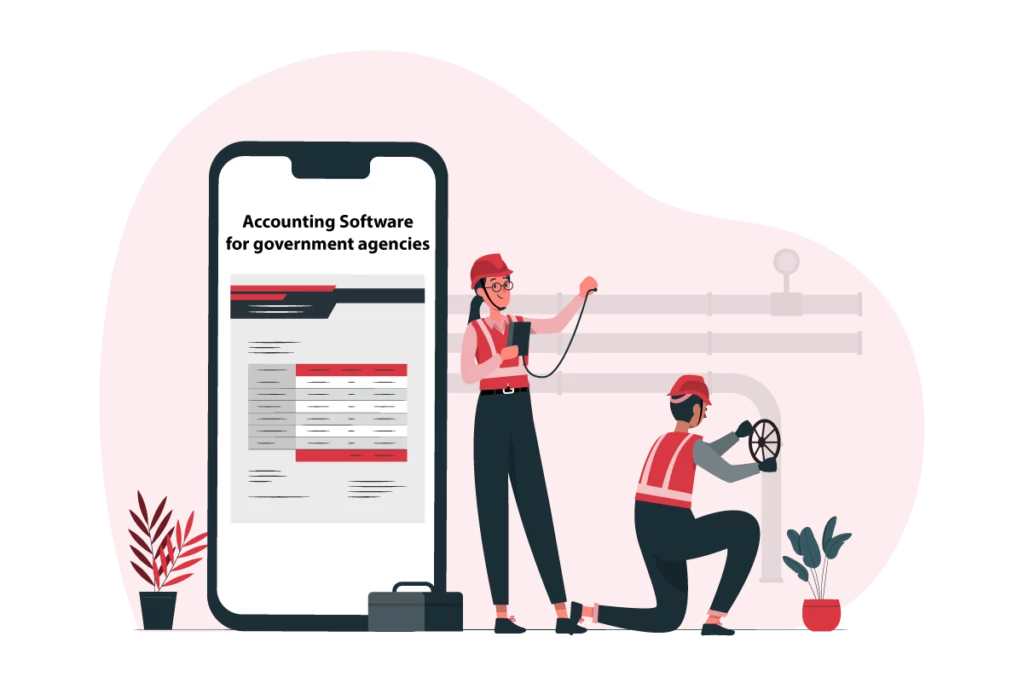
Accounting apps for government offices can provide many benefits and opportunities for the public sector but can also pose challenges and problems that must be addressed and resolved.
Here are some of the common challenges and solutions for accounting software for government agencies:
Data Migration
Data migration refers to transferring the existing data and transactions from the old system to the new one. You may need to transfer your data from old system software or physical ledgers to the latest accounting software.
Data migration can be challenging for government aauthorities, as the data may be small, complex, and inconsistent and require cleaning, mapping, and validating before it can be imported into the new system.
Some of the solutions for data migration are:
- Planned and prepared the data migration strategy and timeline and identified the data sources, formats, and requirements.
- Choosing the right data migration tool or service can help handle the data volume and complexity and provide data quality and security features.
- Test and verify the data migration results and performance and resolve any errors or issues that may arise.
User Adoption
User adoption is the process of training and educating the users on how to use the new system and its features and functions. You have to train your employees to use the new system efficiently. Thankfully, using the Vyapar app is effortless as it has an excellent user interface.
User adoption is challenging for government offices, as the employees may be resistant to change, unfamiliar with the new system, or need more skills and knowledge to use the system effectively and efficiently.
Some of the solutions for user adoption are:
- Communicating and engaging with the users and explaining the benefits and value of the new system and how it can help them achieve their goals and tasks.
- Providing and facilitating user training and education and offering various learning resources and methods, such as manuals, videos, webinars, workshops, and more.
- Seek and incorporate user feedback and suggestions and provide ongoing user support and assistance.
Training And Support
Training and support help provide and maintain technical and operational guidance and assistance for the users. You might get confused with the new system if you don’t get the required support. Vyapar provides access to support staff to help government offices set up the system seamlessly.
Implementing training and support measures is often challenging for government boards, as the system may be complex and dynamic and require constant updates and enhancements.
Some of the solutions for training and support are:
- Hiring and developing the internal IT team and staff and ensuring they have the skills and expertise to manage and maintain the system and provide and deliver user training and support.
- Partner and collaborate with external IT providers and vendors, and ensure that they have the experience and reputation to provide and deliver the system and offer and guarantee the training and support to the users.
- Leveraging and utilising the online and offline IT communities and networks, ensuring that they have the resources and information to provide and share the best practices and solutions for the system, and offering exchange training and support to the users.
Are you a Business Owner?
Take your business to the next level with Vyapar!
Try our Android App (FREE for lifetime)
Frequently Asked Questions (FAQs’)
Fund accounting is a method of accounting that tracks the sources and uses of funds for each fund or project separately. Regular accounting is a method of accounting that records the income and expenses of the whole organisation as a single entity.
Accounting software can help with compliance and reporting for government agencies by automating the generation and submission of reports, such as GST, TDS, Income Tax, etc.
Further, it can help with compliance and reporting by ensuring the accounting data is accurate, consistent, and auditable.
Cloud-based accounting software for government agencies offers several benefits: lower upfront costs, higher scalability, greater accessibility, enhanced security, and faster updates.
Accounting software can improve the efficiency and productivity of government offices by reducing the manual work and errors involved in accounting processes, such as data entry, reconciliation, calculation, etc.
Professional accounting software can also improve the efficiency and productivity of government agencies by providing real-time insights and analytics that can help with decision-making and planning.
Accounting software can facilitate collaboration and communication among government authorities and stakeholders by enabling data sharing and integration with other systems, such as CRMs, budgeting, payroll, etc.
Further, the accounting app for government agencies can also facilitate collaboration and communication by providing dashboards and alerts that can keep everyone informed and updated on the financial status and performance of the organisation.
Vyapar app is a cloud-based accounting software designed to meet all government agencies’ needs. Vyapar app helps government agencies access features such as GST invoicing, inventory management, expense tracking, reports, and more.
Vyapar app can also help government authorities with their accounting needs by offering a simple and user-friendly interface. It comes with an affordable pricing plan and excellent customer support. Government agencies can get a free trial for 7 days before subscribing.
Accounting Software for All Businesses:
Accounting Software for freelancers
Accounting software for construction business
Accounting software for church
Accounting software for travel agency
Accounting software for growing business
Accounting software for daycare
Accounting software for food manufacturers
Accounting software for consultants
Accounting software for advertising agencies
Accounting software for bookkeeping
Accounting software for lending
Accounting software for real estate
Accounting software for architecture firm
Accounting software for property investors
Accounting software for healthcare organisation
Accounting software for interior designer
Accounting software for diamond industry





